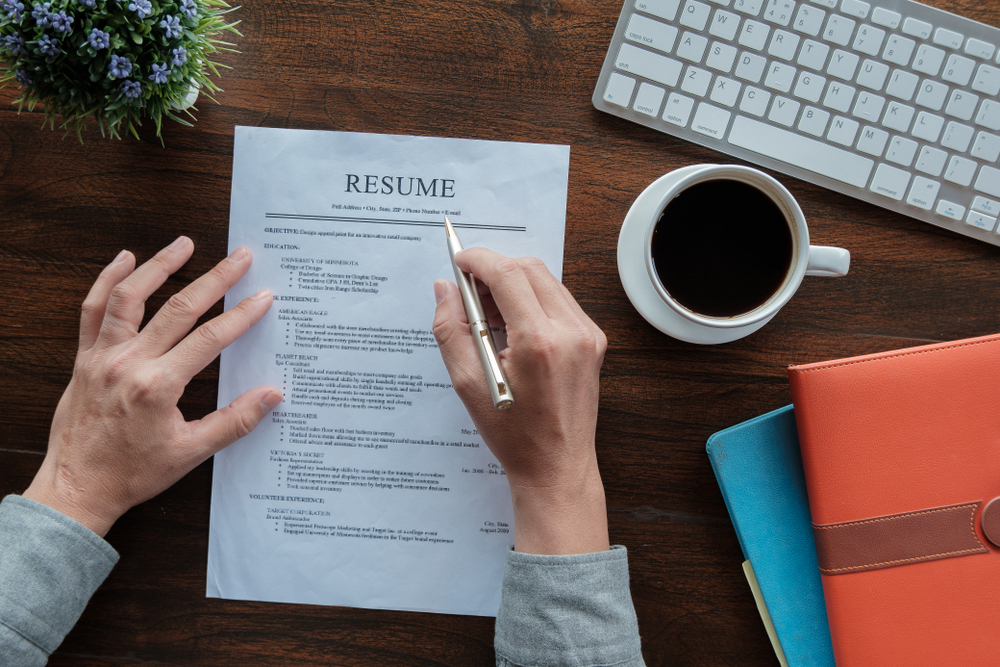Gap Year Resume Entries You Should Add
Tips and Advice
3 mins read
Share

Updated at: 25 November, 2025
Published at: 30 August, 2022
By Allaa Ashraf
Gap Year Resume Entries You Should Add
Tips and Advice
3 mins read

Updated at: 25 November, 2025
Published at: 30 August, 2022
By Allaa Ashraf
Share
There are many paths to go down once you’ve obtained your degree. You may choose to find a job immediately after graduation, or you may choose to take a gap year. People take gap years for all sorts of reasons. Whether it's for self-exploration, travelling, volunteering, or a family situation, you need to prepare for how you’re going to mention it on your resume once it’s over and you’re reorganising your life. Although gap years are quite popular, they also have their cons. Gap years are sometimes considered a red flag for employers. In this article, you’ll learn the tips and tricks for including your gap year in one of your resume entries. So, come on, let’s dive in!

1. Focus on Your Skills
The skills you've acquired and developed are the most important thing to mention from a gap year because they increase your employability chances. After that, you'll need to connect these skills to the jobs you're interested in. When submitting your resume to a recruiter or employer, use the language and keywords from the job posting to align your skills as closely as possible with the position. These skills could possibly include communication skills, budgeting and planning, creativity, organisational skills, or critical thinking.
2. Mention Your Achievements
Keep a record of your professional accomplishments. While it may be difficult to draw achievements from a gap year, think about the challenges you overcame and the fruitful outcomes you produced. Most likely, throughout your gap year, you developed significantly as a person. And while some of what you learned might not be useful in the professional world, other talents might be.
3. Discuss Your Gap Year in a Separate Section
If you had a run of a particular job on your CV and then spent a year working another or volunteering somewhere, you may want to arrange your gap year time off in a distinct section if it feels out of place. This section may also be referred to as "Additional Activities & Experience," "International Experience," "Volunteer Experience," or "International Travel."
4. Get as Many Referrals as You Can
This is one of the most solid resume entries and can get you back in the game. Get feedback and recommendations from your past employers, professors, and clients. This boosts the trust factor and definitely makes a wonderful first impression.
Final Thoughts
While applying the above tips, consider the following as well:
a. Create A Functional Resume.
We recommend you create a resume focused on your skills and qualifications and make it a functional rather than a chronological one. If you're already established in your job and just looking to make a horizontal or vertical move, a chronological resume is optimal. Functional resumes are excellent tools for describing experiences and skills that are not strictly professional. You can use these to add your gap year to your CV. You can add any skills you acquired during your gap year to a functional resume without explicitly stating what you did with them.
b. Make It Relevant.
It's crucial to make the content on your resume relevant to the company and the position you're looking for. Use relevant phrases; for instance, if your gap year was a part of a volunteer programme, highlight the abilities you developed while working overseas and make an effort to relate your experience to the position you're applying for.
c. Be Honest.
Honesty is the best policy! Don’t make things up when it comes to your work experience and skills. Employers have a way of finding everything out, especially when your skills are put to test.
d. Be Concise.
There's no need to fill out your résumé with irrelevant material. Even though it's crucial to mention your gap year, there's no need to get too specific. Your information must be precise and relevant to the position for which you are applying.
e. Embrace It!
The trick is to embrace any gap in your resume and be proud of it as a plus rather than try to hide it. Explain how you used the time in a straightforward and honest manner, highlighting the experience and transferrable skills you earned. Avoid the misconception that your CV should only list paid, full-time, permanent employment because this is untrue. Since they are all equally valuable, you should include volunteer, part-time, and independent work on your resume.
That’s all, folks! Don’t be ashamed of your gap year, embrace it, make the best of it, and then add what you’ve learnt to your resume! If you’re wondering how to create a professional resume as a student, go online and explore resume examples for students.
Tips and Advice
By Allaa Ashraf
Share
Tips and Advice
Updated at:
Published at:
By Allaa Ashraf
Share

